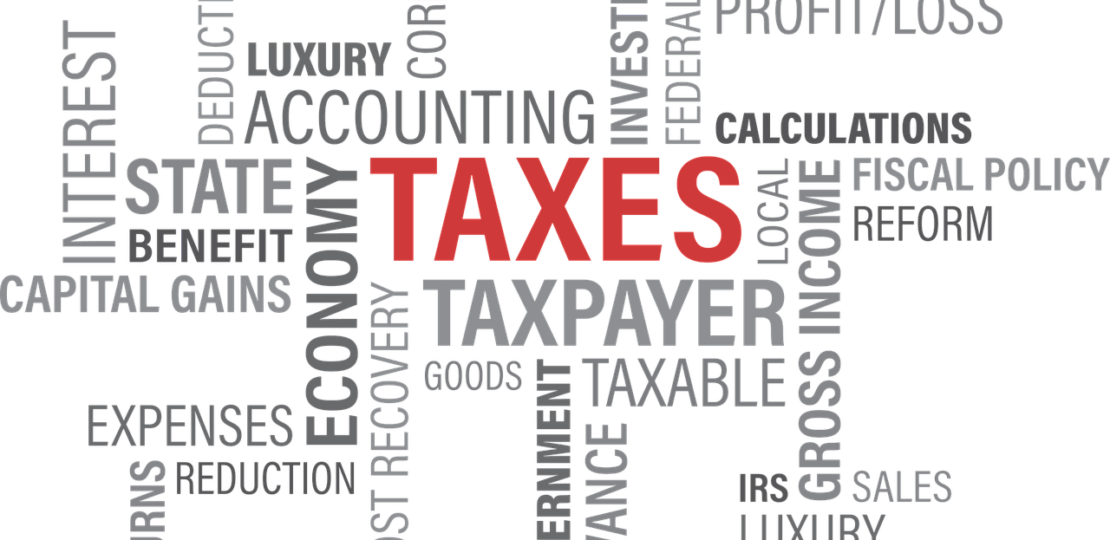Tax Deduction Strategies for Victoria Entrepreneurs
November 3, 2023 | by accountantsvictoria.ca

As an entrepreneur in Victoria, British Columbia, understanding the intricacies of tax deductions is crucial for optimizing your financial situation and minimizing your tax liability. By taking advantage of the various tax deductions available to you, you can reduce your taxable income and keep more money in your pocket. In this comprehensive guide, we will explore tax deduction strategies specifically tailored to Victoria entrepreneurs, providing you with actionable tips and valuable insights to maximize your business tax deductions.
1. Understand Eligible Tax Deductions for Local Entrepreneurs
To effectively maximize your tax deductions, it’s essential to have a clear understanding of the eligible deductions for Victoria entrepreneurs. While the following deductions are general guidelines, it’s always advisable to consult with a tax expert or accountant to ensure compliance with Canadian tax laws and take full advantage of the deductions you’re eligible for. Here are some common tax deductions for Victoria entrepreneurs:
Business Use of Home
If you operate your business from a home office, you may be eligible to claim a portion of your home-related expenses as business expenses. This includes rent, utilities, insurance, and maintenance costs. To calculate this deduction, determine the percentage of your home exclusively used for business and apply it to the corresponding expenses. Alternatively, you can use the simplified option, which allows you to deduct $5 per square foot of your home office space, up to a maximum of 300 square feet.
Vehicle Expenses
If you use your vehicle for business purposes, you can deduct a portion of the operating expenses, such as gas, maintenance, and insurance. Keep detailed records of your business-related travel and calculate the percentage of vehicle expenses directly related to your business.
Advertising and Marketing Expenses
Any expenses related to advertising and promoting your business, such as online ads, print ads, website development, and marketing materials, can be deducted as business expenses. Ensure that these expenses are essential for your business operations.
Office Supplies and Equipment
Deduct the cost of office supplies and equipment necessary to run your business, such as stationery, computers, printers, and software. Keep all receipts and invoices as documentation for these expenses.
Professional Fees
Fees paid to professionals, such as accountants, lawyers, and consultants, can be deductible as a business expense. Additionally, fees related to business incorporation, registration, and licensing may also be deductible.
Travel and Meal Expenses
Travel expenses incurred while conducting business, such as flights, accommodations, and transportation, can be deductible. Similarly, meals and entertainment expenses directly related to business activities may also qualify for deductions. Keep detailed records and ensure these expenses meet the criteria set by the Canada Revenue Agency (CRA).
Education and Training
Expenses for professional development courses, seminars, workshops, and conferences directly related to your business can be deductible. These expenses help you maintain and improve your skills in your field of business.
Health Insurance Premiums
If you’re self-employed and pay for your own health insurance coverage, you may be eligible to deduct health insurance premiums for yourself and your eligible dependents. Ensure that the health insurance policy is in your name and that you meet the necessary criteria.
Retirement Contributions
Contributions made to retirement plans, such as RRSPs or a self-employed pension plan (SEP), can offer tax benefits while helping you save for retirement. Consult with a financial advisor or tax professional to determine the best retirement savings strategy for your business.
Rent and Utilities
If you rent a commercial space for your business, the rent you pay can be deductible as a business expense. Additionally, utilities such as electricity, water, and internet services directly related to your business operations may also qualify for deductions.
Insurance Premiums
Business-related insurance premiums, such as liability insurance and professional indemnity insurance, can be deducted as business expenses. Ensure that these insurance policies are necessary for the operation and protection of your business.
Depreciation and Capital Assets
The cost of eligible capital assets, such as machinery, equipment, and furniture, can be deducted over a period of several years through capital cost allowance (CCA). Consult with a tax professional to determine the appropriate depreciation rates and deductions for your capital assets.
Other Business Expenses
There may be other business expenses specific to your industry or business operations that are eligible for deductions. Keep accurate records and consult with a tax professional to identify and maximize these deductions.
2. Stay Organized and Track Your Expenses
To effectively maximize your tax deductions, it’s crucial to stay organized and track your business expenses throughout the year. Here are some tips to help you stay on top of your expenses:
- Use accounting software or apps to record and categorize your expenses.
- Keep digital copies of receipts and invoices, or consider using a cloud-based storage system.
- Separate your personal and business expenses by using separate bank accounts and credit cards.
- Maintain a mileage log for business-related travel to support your vehicle expense deductions.
- Regularly review and reconcile your financial records to ensure accuracy and identify any missed deductions.
By staying organized and maintaining detailed records, you’ll be well-prepared when it’s time to file your tax return and claim your deductions.
3. Seek Professional Tax Assistance
Navigating the complex world of tax deductions can be challenging, especially for entrepreneurs. Consider seeking professional tax assistance from a qualified accountant or tax advisor specializing in small business taxation. They can provide valuable insights, help you identify overlooked deductions, and ensure compliance with Canadian tax laws. While professional assistance may involve additional costs, the potential tax savings and peace of mind are well worth the investment.
4. Understand Legal Considerations
When maximizing your tax deductions, it’s essential to understand the legal considerations and requirements set by the CRA. Here are some key legal considerations to keep in mind:
- Keep accurate records and maintain documentation for all expenses claimed.
- Ensure that your deductions are reasonable and directly related to your business operations.
- Familiarize yourself with the CRA’s guidelines and eligibility criteria for each deduction.
- Stay up-to-date with changes in tax laws and regulations that may impact your deductions.
- Consider consulting with a tax lawyer for complex tax situations or legal advice related to your deductions.
Adhering to legal considerations will help you avoid potential penalties, audits, and disputes with the CRA. It’s always best to consult with a tax professional to ensure compliance with tax laws and regulations.
5. Expense Management for Small Businesses
Effective expense management is crucial for maximizing your tax deductions and overall financial success as an entrepreneur. Here are some tips to help you manage your business expenses efficiently:
- Implement a budgeting system to track and control your expenses.
- Regularly review and analyze your expenses to identify areas for potential cost savings.
- Consider negotiating better terms with suppliers and vendors to reduce expenses.
- Automate expense tracking and reimbursement processes to streamline operations.
- Educate yourself and your employees on allowable business expenses and the importance of proper documentation.
- Continuously monitor and adjust your expense management strategies to align with your business goals.
By actively managing your expenses, you’ll not only optimize your tax deductions but also improve your business’s financial health and profitability.
Conclusion
As a Victoria entrepreneur, maximizing your tax deductions is essential for minimizing your tax liability and optimizing your financial position. By understanding the eligible tax deductions, staying organized, seeking professional tax assistance, considering legal considerations, and effectively managing your expenses, you can maximize your business tax deductions while ensuring compliance with Canadian tax laws. Remember, every deduction counts, and it’s crucial to consult with a tax professional to ensure you’re taking full advantage of the deductions available to you. With careful planning and strategic tax deduction strategies, you can keep more money in your pocket and contribute to the financial success of your business.

For all your accounting and tax need please contact us today
RELATED POSTS
View all


